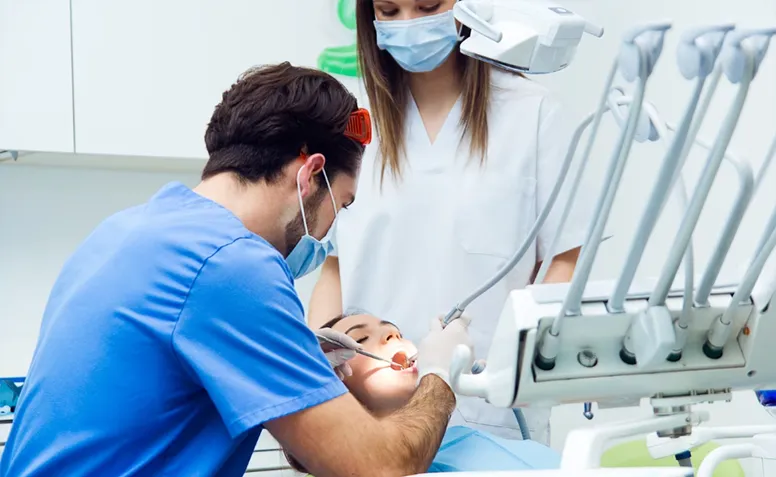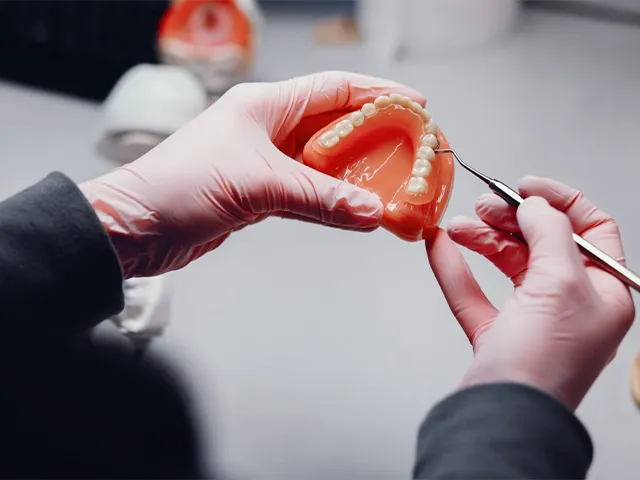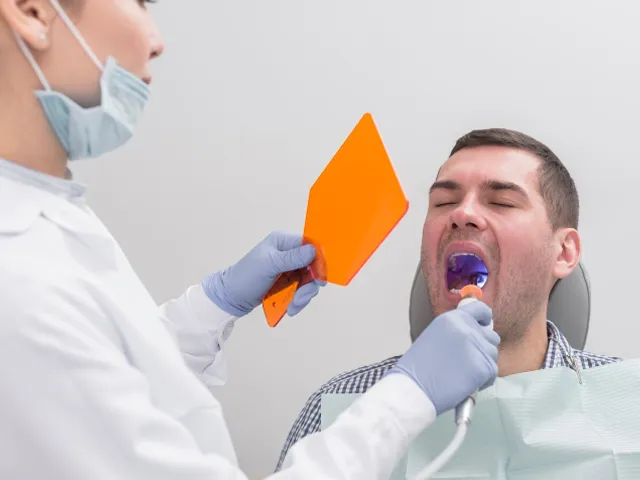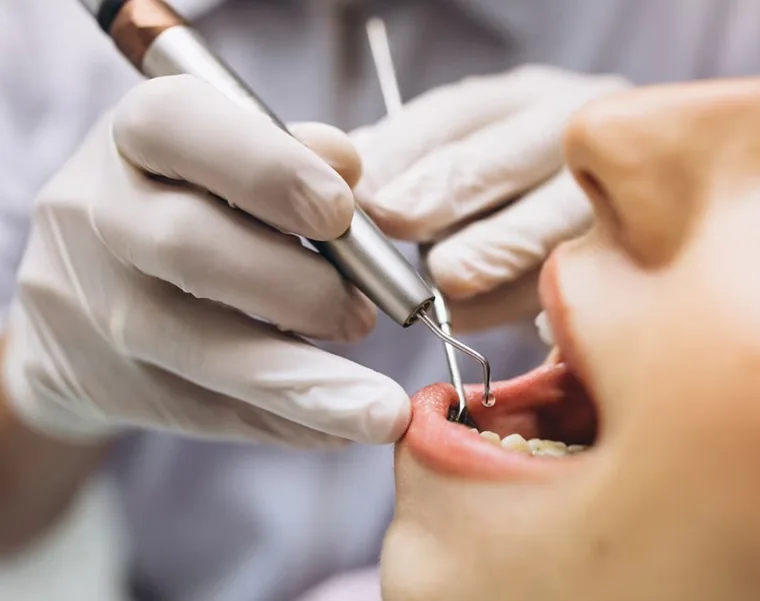Oral and maxillofacial surgery is also known as oral surgery. This surgical branch is a specialty area focused on various health issues in the mouth, teeth, and jaw region. It deals with surgical interventions on oral tissues, teeth, and jawbones.
Oral and maxillofacial surgery specialists typically perform various procedures such as tooth extraction, implant placement, jaw surgery, and treatment of facial traumas. The surgical removal of cysts or tumors in the mouth is also within the scope of this specialty. Oral, dental, and jaw surgeries involve procedures performed under local anesthesia. This allows for the comfortable and effective application of surgical interventions for patients.
Furthermore, with the use of modern technology, many of these surgical procedures have become less invasive nowadays, which can accelerate the healing process. This field addresses various conditions that can affect not only dental health but also general health. For example, it also provides expertise in areas such as jaw joint problems and sleep apnea treatment. This surgical branch may require a multidisciplinary approach. Collaboration among professionals from different specialty areas, such as dentists, ENT specialists, and plastic surgeons, is important.
What is Oral and Maxillofacial Surgery?
It is a medical field that examines various pathological conditions in the mouth, teeth, and jawbones and performs surgical interventions. Many people know oral and jaw surgery as a dentistry specialty, but the type of work required is much more complex than what a general dentist does. An oral and jaw surgeon is indeed a combination of both a dentist and a medical doctor. Thus, many oral and jaw surgeons hold degrees in both dentistry and medicine. This branch, generally referred to as oral surgery, is concerned with the preservation, correction, and reconstruction of oral health.
Its primary goal is to treat diseases and deformities in the mouth, address tooth deficiencies, and correct structural problems in the jawbones. Oral, dental, and jaw surgery includes procedures such as tooth extraction, dental implants, jaw surgery, surgical treatment of facial traumas, and problems with the jaw joint. Jaw surgeries are operations that are suitable to be performed after growth has stopped. Treatments for patients who cannot adapt to dental treatments due to physical or mental disabilities, who have fear of dentists or operations, or who cannot communicate effectively are usually performed under general anesthesia in operating room conditions.

What Does Oral and Maxillofacial Surgery Do?
Oral and maxillofacial surgery is a specialist who treats dental and medical problems related to the oral cavity and the maxillofacial region of the face and jaw. The maxillofacial area of the body includes the forehead, face, cheekbones, and the soft and bony tissues. Conditions found in its area of practice include:
- Normal and surgical extractions of teeth,
- Extractions of impacted, complicated, or erupted teeth,
- Dental and zygomatic implant applications,
- Diagnosis and treatments of jaw cysts and tumors,
- Sinus lift procedures,
- Bone augmentations,
- Treatment of cleft lip and palate,
- Diagnosis of systemic diseases presenting in the oral, jaw, and facial region and referral to medical specialties for consultation when necessary,
- Diagnosis, treatment, and long-term follow-up of traumatic dental and supporting tissue injuries,
- Medical and surgical treatments of all kinds of infections in the oral, jaw, and facial region,
- Surgical correction of hard and soft tissue deficiencies for dental implant applications,
- Treatments of jawbone necrosis resulting from drugs and radiotherapy used in cancer treatment,
- Surgical correction of aesthetic and functional disorders caused by deformities in the oral, jaw, and facial region,
- Conservative and surgical treatments of jaw fractures.











